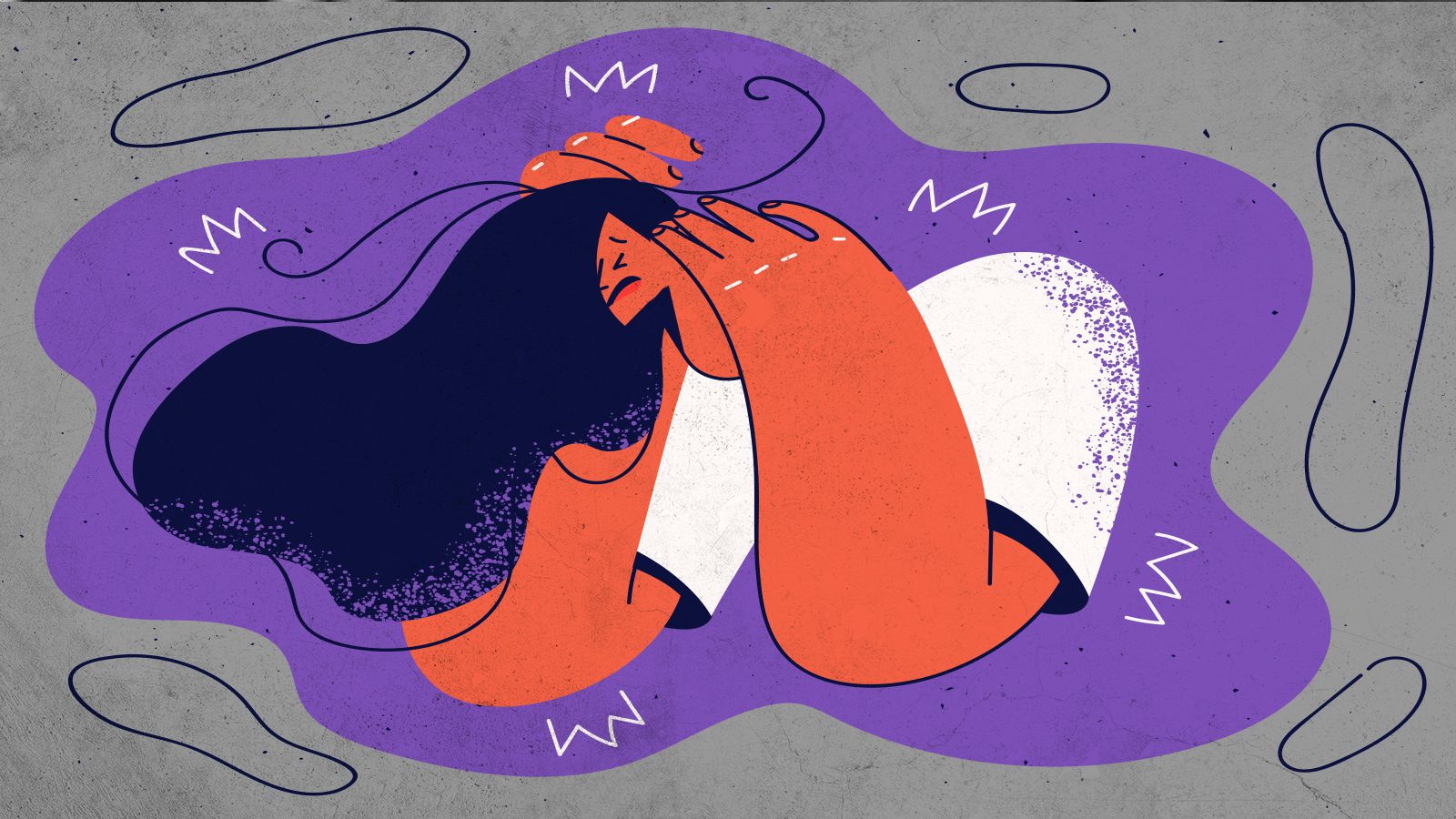If you want to make good choices in life, you need to stop and carefully consider each action. Have you ever been in a situation where you stall because you meditate on things and take longer to make choices than you should? It’s a classic problem to overthink, and it can hold you back in life.
While it’s necessary to put a great deal of thought into your decisions, you can often dwell too long on an issue. In many instances, it’s better to go with your gut instincts rather than overthink things. Dr. Sanam Hafeez is an expert at Comprehensive Consultation Psychological Services in New York City.
He states that he’s observed people who develop paralysis by analysis because they overthink. This event occurs when you ruminate over something so much that you become paralyzed by the fear of going forward or backward.
The Damage Caused by Sabotaging Self-Talk
Consider this example. Henry got a great job offer in California. He was tired of the harsh winters of Michigan, and he longed to live in the sunshine and help his seasonal affective disorder. Still, the cost of living was much higher, even though the job paid more.
He made the traditional pros and cons list trying to make the right choice, but the more he thought about the move and the process, the more scared he became. It was a big decision to move his family across the country to an unknown place, but his fears and constant ruminating about it paralyzed him from living out his dreams.
He might indeed have failed when he made it to California, as many things can happen. He might have hated the job, not made any friends, and had difficulty financially. The problem is that if he stays where he is, he is already unhappy, so there’s no change.

Being afraid to step outside your comfort zone is a significant risk, but if you don’t ever take any risks in life, then you won’t reap the tremendous rewards. He turned down the job, and he’s still miserable in the winter and fighting the depression. The moral of the story; don’t be like Henry.
Don’t overthink things to the point where you talk yourself out of them. Stop overthinking every little choice you must make. Go with your gut and take a chance!
Each person has an inner voice that’s there to guide them. When you think about something too much, you’re disconnecting yourself from your instincts. That voice inside will tell you that you need to take that job in California, but the fear of moving across that country will give you all the reasons you shouldn’t go.
Five Ways Overthinking Holds You Back
The key is that you need to make wise decisions. You don’t want to make a wrong choice and have it come back to bite you in the end.
However, you don’t want to let your sabotaging self-talk keep you from doing some great things in your life. Here are some ways that your overthinking can hold you back.
1. You Don’t Go Forward or Backwards
Overthinkers are scared to move to the left or right. Have you ever seen someone in a movie stuck in quicksand? They are paralyzed because of the heavy weight from the sand pressing on their bodies.
When you contemplate a situation for too long, you are often like someone trapped in that sand. You’re too afraid to make a move as you fear that it will all collapse around you. Thus, you live a life of unhappiness controlled by fear.
2. You’re Not In-Tune with Your Instincts
While pro and con lists are good tools, they bypass your Universe given instincts. Your gut instincts are there to help guide you through life, and you may be shocked to discover that these little pangs of what to do are accurate about 90 percent of the time.
A study was conducted and reported in the Uk’s Daily Mail. The participants had two choices to make and used only their instinct to make such a decision.
The researchers were shocked when they found that using instinct alone allowed these people to make the right choice most of the time. Only 10 percent made the wrong choice when using their gut. It just shows how accurate these little urges you feel genuinely are in life.
3. Overthinking Makes You Miss Deadlines
Did you know that many people who have a problem with overthinking tend to miss deadlines? Jessica’s boss asked her to write a report he needed for a presentation. Knowing this was a vast project, Jessica kept deliberating on which direction to go with the piece.
She knew that the deadline was fast approaching, but she started over so many times she had nothing completed by the due date. She asked for additional time, but Jessica’s boss reassigned the project to someone else. Though she did work on the piece, her employers saw it as not getting her job done.
Sometimes, you can overthink something to the point where it causes you to miss deadlines. Jessica’s case left a wrong impression of her work ethic to her employer, which wasn’t the case. She just was so wrapped up in her thought she couldn’t produce what was needed.
If you allow your thoughts to overrun you, it will cause you to miss many deadlines. These deadlines are imperative for your job, family, and self in many instances.
4. You Spend Too Much Time in Your Head
Many people have a challenging time being present at the moment. Life keeps you busy, but when you spend a great deal of time in your head, you zone out when around others. It’s effortless to focus more on your thoughts than the people sitting right in front of you.
Sadly, this can come across that you’re not interested in them when nothing could be further from the truth. Many people ruin relationships because of overthinking things about their life instead of focusing on the moment. Consider Tina.
She was dating the man of her dreams, but he’s been very distant lately. She wanted more than anything to make things work so they could get married, but there was a disconnect. Tina was at lunch with three of her friends, but she barely said two words.
Though she was sitting in the small café, her mind was 100 miles away. Her friends thought she was disinterested in being there and were offended. The truth was that she was so worried about her boyfriend and what to do about the situation that she couldn’t get her mind off it.
5. Overthinking Causes Sleep Disturbances
Do you lay in bed each night and can’t sleep? Does your mind play like a perpetual loop that keeps you from slumber? You worry about health, bills, children, family, and decisions that you must make. Before you know it, it’s 5 am and the night is gone, but you haven’t got one ounce of sleep.
When you’re overthinking your life and everything that it involves, it can disrupt your sleep. Reaching your goals requires you to be in top shape, which means getting sufficient rest. It’s easy to let the cares of life weigh you down, but you need to learn to shut your mind down so that you can repair and restore yourself through sleep.
Three Quick Tips to Stop Overthinking
You’ve learned the consequences of an overactive mind that ruminates constantly, but you need to know how to fix it. Here are some quick tips to help you stop overthinking.
1. Meditate
When your mind is going so fast that you can’t stop it and tend to have a hard time deciding, you need to meditate. Meditation can help you purge negativity and open your mind to a higher power.
2. Journal
Journaling is a great way to get all those jumbled thoughts out on paper. The purpose is to put things down in black and white as it helps you make sense of them. Decisions making is often more manageable when you have a pros and cons list, though it bypasses the gut instincts.
3. Live in the Present
Many people are so focused on the big picture and what’s happening tomorrow that they don’t stop to enjoy today. When your mind starts to wonder, real it back in by engaging with the present.
Final Thoughts on the Harmful Impacts of Overthinking
Those who have bad decisions burned in their past might tend to think long and hard before making any choices. While it’s good to be careful and not want to make any mistakes, you’re not living.
Life is all about making choices, some of them good, and some of them bad. How do you know if you will fall flat if you don’t take a chance? Remember that a baby must fail many times before they finally learn how to walk, but if they never fell and experienced the pain of those falls, they would have never been where they are today.




















